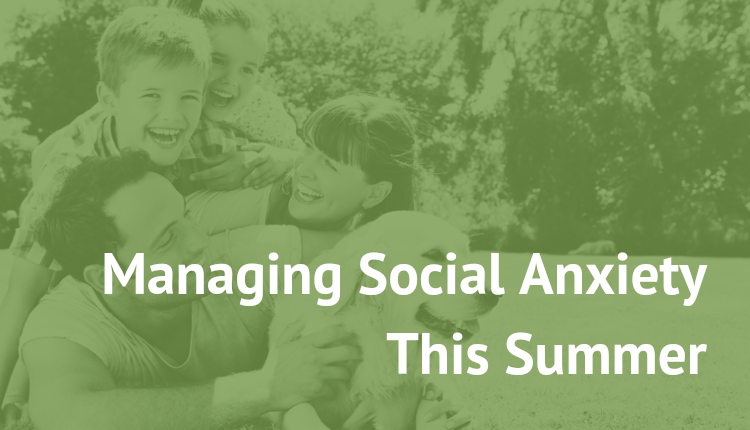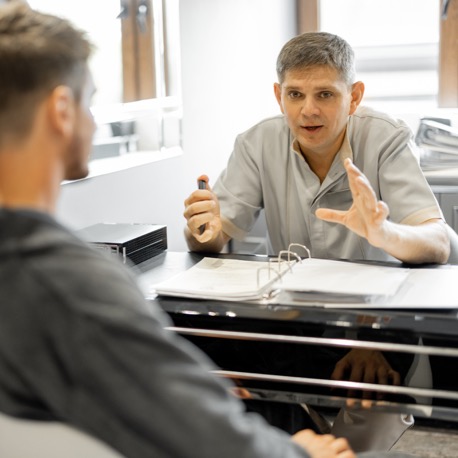Summer is a time for sunshine, relaxation, and social gatherings. However, for many, it can be a period of heightened social anxiety. Managing social anxiety during summer events such as family reunions, work cookouts, and travel is crucial for maintaining mental well-being.
Family Reunions
Family reunions are a common summer event that can trigger social anxiety. The anticipation of interacting with relatives, especially those not seen often, can be overwhelming. A study published in the Journal of Anxiety Disorders highlights that social anxiety can be exacerbated by unfamiliar or less frequent social interactions (Stein et al., 2002).
To manage this anxiety, prepare in advance. Practice deep breathing exercises or mindfulness techniques to help calm your mind. Setting realistic expectations can also help. Remind yourself that it’s okay to take breaks from socializing and find a quiet space if needed. Additionally, consider setting small, achievable goals for the reunion. For instance, aim to have a meaningful conversation with just one or two family members rather than trying to engage with everyone. Bringing a trusted friend or family member as a support system can also provide comfort and help reduce anxiety.
Work Cookouts and Barbecues
Work-related social events, such as cookouts and barbecues, can also trigger anxiety. The informal setting may create pressure to engage in small talk with colleagues, which can be daunting for those with social anxiety. According to research by Alden and Taylor (2004), individuals with social anxiety often fear being judged or scrutinized in social settings. To ease this anxiety, focus on one-on-one conversations rather than large group interactions. Additionally, setting small, achievable social goals can help build confidence.
Travel
Travel for summer vacations can be another source of anxiety. The fear of the unknown, navigating new places, and interacting with strangers can be stressful. A study in the Journal of Travel Research found that social anxiety can significantly impact travel experiences (Laesser et al., 2009).
To manage this anxiety, plan your trip in detail. Familiarize yourself with your destination, and have a flexible itinerary. This preparation can make the unfamiliar feel more predictable and less intimidating. Travel with a supportive friend or family member if possible. Having someone familiar by your side can provide comfort and reassurance.
Engaging in grounding techniques, such as focusing on your senses, can help manage in-the-moment anxiety. For example, pay attention to the sights, sounds, and smells around you. This can distract your mind from anxious thoughts. Additionally, consider using technology to stay connected with loved ones. Regular check-ins via text or video calls can provide a sense of security and support.
If you are flying, try to arrive at the airport early to avoid the stress of rushing. Bring items that comfort you, such as a favorite book or music. For those with severe anxiety, discussing medication options with a healthcare provider before traveling may also be beneficial.
Body Image and Summer
Body image concerns can exacerbate social anxiety during summer months. Media pressures us to get ready for “bikini season.” Activities such as swimming and wearing lighter clothing can make individuals feel self-conscious. Body image issues often surface more in the summer due to increased exposure from wearing lighter clothing and swimsuits. The season’s emphasis on outdoor activities and social gatherings can heighten self-consciousness and comparison with others. Research from the International Journal of Eating Disorders indicates that body image issues are closely linked to social anxiety (Levinson & Rodebaugh, 2012). To address this, practice self-compassion and positive self-talk. Avoid comparing yourself to others, and focus on what your body can do rather than how it looks. Engaging in regular physical activity that you enjoy can also boost your confidence. Seeking support from a therapist or joining a support group can also provide valuable guidance and encouragement.
General Tips for Managing Social Anxiety
- Preparation: Plan ahead for social events. Know who will be there and what to expect.
- Mindfulness: Practice mindfulness or meditation to stay grounded.
- Gradual Exposure: Gradually expose yourself to social situations to build confidence.
- Seek Support: Talk to a therapist or join a support group for social anxiety.
Managing social anxiety during summer is essential for enjoying the season. Whether it’s family reunions, work cookouts, travel, or body image concerns, there are strategies to help you cope. At New Paradigm Recovery, we understand the challenges of social anxiety. Our team offers comprehensive outpatient mental health treatment to help you navigate social situations with confidence. Contact us today to learn more about our services and start your journey to a more fulfilling summer.
Works Cited
Alden, L. E., & Taylor, C. T. (2004). Interpersonal processes in social phobia. Clinical Psychology Review, 24(7), 857-882. doi:10.1016/j.cpr.2004.07.006
Laesser, C., Beritelli, P., & Bieger, T. (2009). Solo travel: Explorative insights from a mature market (Switzerland). Journal of Travel Research, 47(2), 217-227. doi:10.1177/0047287508321194
Levinson, C. A., & Rodebaugh, T. L. (2012). Clarifying the prospective relationships between social anxiety and eating disorder symptoms and diagnoses. International Journal of Eating Disorders, 45(7), 773-782. doi: 10.1016/j.appet.2016.07.024
Stein, M. B., Walker, J. R., & Forde, D. R. (2002). Public-speaking fears in a community sample: Prevalence, impact on functioning, and diagnostic classification. Archives of General Psychiatry, 53(2), 169-174. doi:10.1001/archpsyc.1996.01830020087010

